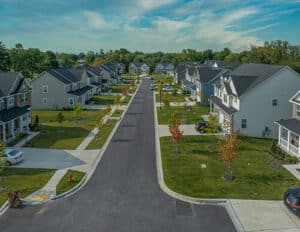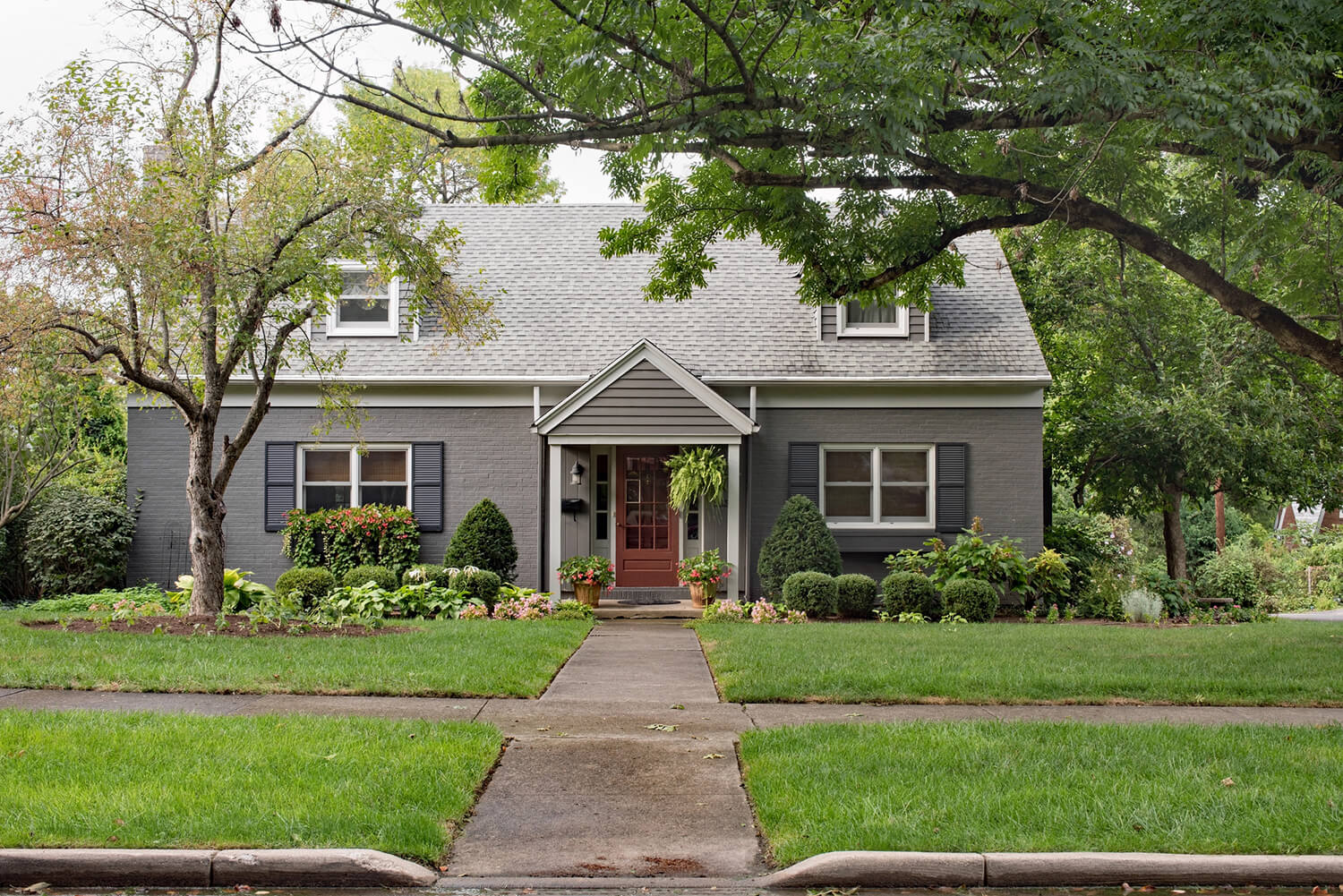Essentials of Property Easements in New Jersey
 If you have ever seen two neighbors share a driveway or seen your auntie’s neighbors use her back garden to cross into the woods near her house to go berry picking, those are examples of easements. Other examples of easements are when one neighbor has access to a boat ramp, but other neighbors in the vicinity also use access to the boat ramp. Utility companies often use easements to place extra waterlines, utility poles, or electric lines between houses. Individuals who live near hunting grounds frequently allow hunters to follow the trail on their property to get from one area to another. Easements are encountered more frequently than ever before as New Jersey becomes more densely populated. An easement is an area owned by someone who allows others to use a part of it or pass through the property. It is unique to the agreement between the two parties involved. As such, easement agreements are structured so that the specific use of the property is explicitly outlined, and the property owner is given a termination of easement. Such agreements are sometimes transferred in a property sale, so it’s important for potential buyers to know if any easements on the property are being evaluated. There are formal and informal easements that can pass from owner to owner.
If you have ever seen two neighbors share a driveway or seen your auntie’s neighbors use her back garden to cross into the woods near her house to go berry picking, those are examples of easements. Other examples of easements are when one neighbor has access to a boat ramp, but other neighbors in the vicinity also use access to the boat ramp. Utility companies often use easements to place extra waterlines, utility poles, or electric lines between houses. Individuals who live near hunting grounds frequently allow hunters to follow the trail on their property to get from one area to another. Easements are encountered more frequently than ever before as New Jersey becomes more densely populated. An easement is an area owned by someone who allows others to use a part of it or pass through the property. It is unique to the agreement between the two parties involved. As such, easement agreements are structured so that the specific use of the property is explicitly outlined, and the property owner is given a termination of easement. Such agreements are sometimes transferred in a property sale, so it’s important for potential buyers to know if any easements on the property are being evaluated. There are formal and informal easements that can pass from owner to owner.
Whether you are purchasing or selling a property in Ocean County or Monmouth County and have questions about the influence of an easement on your real estate transaction, the Bronzino Law Firm’s real estate legal knowledge and skill is second to none. Real estate decisions require meticulous attention to detail because mistakes can be costly. Our attorneys will listen to your particular concerns and create the best plan for you. Our firm has no cookie-cutter strategies because we know each client has unique needs and perspectives when it comes to the properties they invest in and divest of. Don’t navigate the complexities of the real estate legal process alone. Contact us today at (732) 812-3102 for guidance and personalized solutions. We offer free consultations to best meet your needs.
Decoding Easements and What they Mean for New Jersey Properties
There are several types of easements, each with a specific set of characteristics.
Easement Appurtenant—This is an easement that is part of the property. The landowner owns the easement, and when the property is sold, the easement goes with it. Examples of this kind of easement are shared utility lines and driveway access.
Easement in Gross—This easement is not part of the property owned by the landowner. It is granted to a specific person or organization for a time. For example, if Mrs. Klein allows her neighbor to use her pool, but when her neighbor moves or Mrs. Klein sells the property, the easement does not have to continue because it is not transferable unless the easement is for commercial reasons.
Express Easement – This easement is in writing, and a legal document has been created to reflect the reservation of a particular parcel of land. It is essential that the language of the document clearly explains the determined use of the easement. Express easements can be affirmative or negative. An affirmative easement could be using a path that crosses a neighbor’s property to access beachfront or shaded woodland. A negative easement is a promise by the holder of the easement not to do something with the property, such as building a gazebo or other structure.
Implied Easement– An implied easement is granted based on necessity or prior use. When a landowner has a piece of real estate and divides the land into parcels, leaving one parcel without access to a driveway, exit road, drainage pipes, etc, for example, Mr. Gomez has a house on a 4-acre plot. He decided to use 2 acres of the south side of the parcel to build an additional house. The new house owners need to use their driveway to exit the property, as there is no other exit. An implied easement can also be granted based on prior use. If a parcel of land is purchased and has an easement used with the previous owner, the easement stays in effect.
Prescriptive Easement– This category of easement is not in writing. Suppose someone uses the easement of another property for more than 20 years. In that case, the easement becomes permanent, and the user can obtain legal permission to use the easement for a specific reason. If one person uses the easement and moves away after 9 years, the new owner can add those years to the years they have lived on the adjacent property. The owner’s permission is not created by mutual agreement.
Advantages and Disadvantages of Easements for Property Owners in NJ
The downside of an easement is that it could affect the owner’s ability to use their land to build a pool or some other structure, such as a garage or shed. If utility lines run on poles above the ground, they may damage the property’s aesthetic and lower its value. If there are water lines or underground cables, it could limit the owner’s ability to dig on the property. If the driveway has an easement, there may be some inconvenience for both parties in terms of parking. An agreement should be worked out regarding where each neighbor’s car should be parked to limit obstructing the exit or entrance of vehicles. An advantage would be access to mutual benefits for the homeowner and surrounding neighbors, such as a shortcut to a local school. An easement with a path leading to a waterfront could increase the property’s value.
Rights of the Easement Holder in NJ
The easement holder has the right to use it for its designed purpose and is responsible for maintaining and repairing any structures related to its purpose. The easement holder also has a right to access it, which means the owner cannot block or impair free access. Additionally, in some cases, an easement holder has the right to prevent unauthorized use of the easement by third parties.
Rights and Duties if there is an Easement On Your Property in New Jersey
The property owner is responsible for ensuring that no unauthorized changes occur on the easement or that it is used for something other than its stated purpose. They are responsible for ensuring activities on their land do not damage the easement. For example, if the owner digs holes for fence posts and a water pipe is damaged. The property owner must provide free access to the easement for the easement holder, including occasions when maintenance will be performed.
Understanding and respecting these rights and responsibilities will limit conflicts and create a cooperative, peaceful environment between neighbors.
Common Easement Disputes and How to Navigate Conflicts

Get Help with Property Easements from Howell Real Estate Attorneys
Anytime you deal with real estate issues, it is imperative to seek knowledgeable legal counsel. Buying or selling a property is a complex issue requiring multiple steps and detailed documents. Maybe you have already bought a property and need help with the easement agreement. We can conduct title searches, identify existing easements, and prepare documents related to any easement disputes. Our attorneys will find the best solution for you, even if it means going to court. At the Bronzino Law Firm, we assist clients with easement matters affecting their real estate transactions in Sea Bright, Beach Haven, Freehold, Toms River, Howell, Neptune, Wall, Seaside Heights, Asbury Park, Red Bank, and Ocean Township. Our real estate lawyers take immense pride in our work and greatly value our clients’ satisfaction when they trust us with these important life-changing decisions, which is why we will work step by step to ensure a positive outcome. If you have questions or concerns regarding a property easement and its potential implications for the success of your purchase or sale, call us today at (732) 812-3102 or contact us online for a free consultation.







